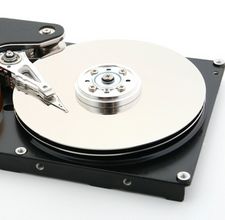I hear the above often, very often.
So in this post, we will answer the following questions:
1 What is defragging?
2 Does it really make a difference?
3 Can it hurt my computer?
First things first what is fragmentation? Think of a hard drive as an empty book. You then fill it with programs which we will call chapters. Front to back of course. Now a “chapter” gets longer but it is in the middle of the book, so you just put a note on the last page of that chapter that says see page X for the rest of this chapter. Now after enough revisions of the chapter it becomes pretty hard to read. Think of defragging like taking the book apart and putting it in a 3 ring binder so each chapter can be put in order from first to last page. That is defragmentation in a nutshell.
Does it make a difference? Yes. Does it make a noticeable difference? Maybe… That depends on how you use a computer. The performance difference really is dependent on how old the hardware is and how fragmented the drive is versus how often the drive is accessed for what you do. I’ll just say that defragmenting won’t slow you down any. Most people won’t notice a speed difference on their computer until it is in the 9-11% range and a defragmentation is capable of doing that.
Can it hurt my computer? Yes, absolutely. Will it? Probably not. Running a defragmentation is very demanding on a hard drive and can kill one that is on the verge of failing anyway. But this is why we do regular backups. For most people defragging your computer every 3-4 months will do just fine.
So there you have it, the basics of defragging. Why do people defrag? Simple, they want to speed up their computer. If your PC is slow enough that it is bothering you, chances are you will need more than a simple defrag. There are two main ways to get that new PC speed back. Hardware upgrade & software tune up and defragmentation is a small part of that process.
If you are looking to speed up your laptop or desktop PC, LiamTek can help.

